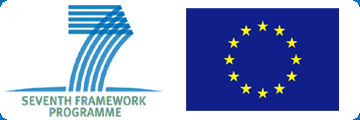Evaluation - Call for expression of interest
The EDC2020 project is looking for an external evaluator or evaluation team. A call for expression of interest / the terms of reference are now available.
The main purpose of the evaluation will be to help participants, other stakeholders and donors to learn from the experience of the project. Proposals including a concept note (max. 6 pages) and budget should be sent before 30 April 2009 to akdeniz(AT)eadi.org.
Terms of Reference / Call for expression of interest
The Project
The overarching goal of the project “European Development Co-operation to 2020” [EDC2020] as stated in its funding application is “To improve EU policy-makers’ and other societal actors’ shared understanding of emerging global challenges facing EU development policy and external action.”
This goal is based on three main pillars
- The production of innovative knowledge on emerging issues with relevance to EU policymaking
- The dissemination of relevant knowledge to stakeholders in EU development politics to facilitate improved policymaking
- The provision of a platform of debate on global challenges facing Europe, on the future role Europe has in the world and on its relation to developing countries.
The project is focussing on and deals with the following issues:
- New actors in international development,
- Energy security, democracy and political development, and
- European development policy and climate change.
Purpose of the Evaluation
The main purpose of the evaluation will be to help participants, other stakeholders and donors to learn from the experience of the project. In particular it may be of use to
- EDC2020 management and participants - it is hoped that the evaluator(s), by being periodically in contact with the project will contribute to its iterative development by raising issues as to its progress, upon which participants and managers will be able to reflect and act;
- The development research sector more generally, especially those concerned with policy-oriented research, research communication, knowledge and information exchange;
- DG Research and FP7.
As the EDC2020 project is increasingly focusing on the importance of emerging global challenges for development policy, an evaluation process which produces a variety of perspectives rather than a single ‘answer’ may be appropriate. At the minimum, the evaluation needs to be based on a broader understanding of development theory and practice, taking into account more than one national experience. As output of the evaluation we expect an initial paper describing the content of the evaluation (June 2009) and a final evaluation report at the end of the EDC2020 project (April 2011).
The Evaluation Process
It is intended to appoint an evaluator or an evaluation team in the second year (mid of 2009) of the programme (project to be finalized in April 2011) in order
- to discuss in detail the most appropriate evaluation methodologies
- to allow the evaluator(s) to discuss systems for monitoring and recording the project appropriate to these methodologies with programme participants and managers at an early stage
- to allow the evaluator(s) to get some impression of the project and its participants at some point close to its start
- to allow the joint planning of activities so that the evaluators - clearly identified as such – can attend various programme events and activities in order to interact with people directly, rather than (exclusively) through the more costly alternative of separately arranged meetings.
The evaluators will keep in whatever touch with the project deemed necessary by the chosen methodology before seeking to produce a completed evaluation at the end of the project.
Evaluation Content
The evaluation work will deal with the question whether the programme has made significant progress towards achieving its stated goal and purpose.
We are seeking a process where relevant evidence – both quantitative and qualitative - is collected by the project management and the evaluators throughout the project life. This evidence is then subjected to intelligent and conceptualised analysis. We would like to involve the International Advisory Group of the project in this process. More specific questions, which may permit the gathering of evidence and contribute to an understanding of the overall picture include:
- What audiences is the project reaching? How? Are these the intended audiences? What evidence exists of ideas being passed on and discussed with others? What evidence exists - however anecdotally - of ideas and information from the project being applied?
- Do people find the issues discussed relevant to their work? Why or why not? If not, what is the reason?
- What are the responses to the quality of programme output (working papers, policy briefs etc.)? Is it perceived as innovative?
- What are the views of policy-makers and practitioners which have participated in or come across the programme? Does this policy-oriented programme successfully take on board the needs of policy-makers?
- How well has the structure of the project worked? How can its cost/benefit outputs be usefully analysed?
Evaluation budget
A budget of maximum EUR 30.000 has been allocated for this work. The contract will be awarded to the bid offering best value for money (best price-quality ratio).
Timeline
Proposals including a concept note (max. 6 pages) and budget should be sent before 30 April 2009 to akdeniz(AT)eadi.org
For more information you may contact Can Akdeniz (akdeniz(AT)eadi.org).
Events
31 March 2011: Workshop on Climate Change: How can national delivery of climate finance be secured effectively? London, UK
9-10 February 2011: Briefing To Parliamentarians on coherence between energy security and development and EDC 2020 Final Event on Shaping Europe's Global Role, Brussels, Belgium
